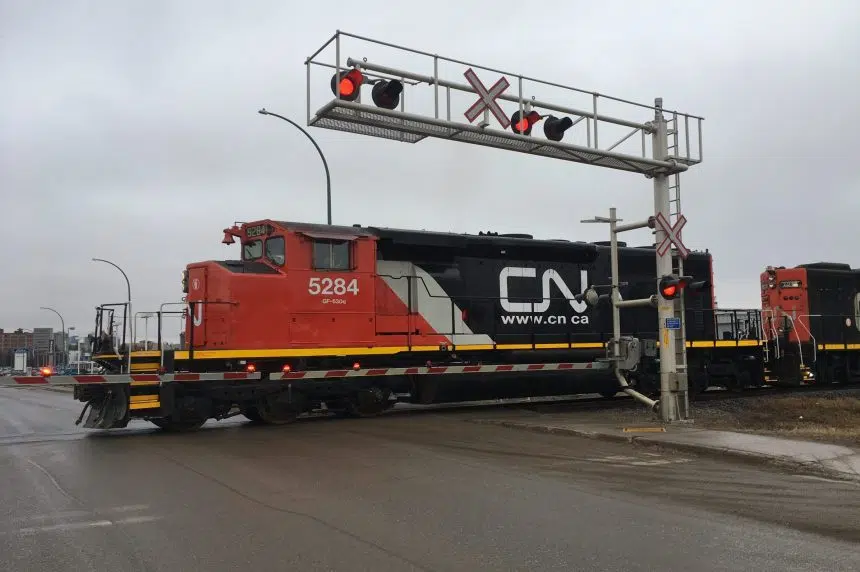Protests blocking rail lines in support of Wet’suwet’en’s hereditary chiefs may not be happening in Saskatchewan, but at least one local company is seeing an impact on business.
Greg Cruson is the general manager of Pilot Butte-based Dutch Industries, which has been manufacturing agricultural equipment since the 1950s. He said the factory relies on rail transportation to get raw materials like steel.
“When we’re talking about moving Canadian steel into a Canadian factory here in Saskatchewan, that’s primarily how that stuff moves is by rail. So if it can’t move by rail, then it’s got to move by truck instead and the costs go up,” Cruson said.
Cruson couldn’t put an exact dollar figure on the increased cost to ship steel by truck, noting the company depends on an outside distributor.
“Ultimately somebody has to accept the costs associated with it, so if they’re moving from rail to truck, that directly affects our costs,” he said.
He said the company is also hearing from customers in the agriculture industry who are very concerned about rail blockades.
“No. 1, it’s making them nervous about when to move their product and how it’s going to get out of the province. (There’s) not too many that have said at this point it’s directly affecting their bottom line today, but they’re expecting that it’s going to be happening shortly,” Cruson said.
Dutch Industries is a member of the Canadian Manufacturers Association, which is one of several business organizations calling for action to address the blockades of the transportation system that companies like theirs rely on.
“We understand from them that there’s $425 million worth of manufactured goods that haven’t been moving whenever a rail car’s sitting idle, so that’s a significant amount of dollars across Canada,” Cruson said.
Cruson called on the federal government to take action to find a real solution.
Blockades have been set up on rail lines in other areas of the country to support the Wet’suwet’en’s hereditary chiefs, who are opposed to a natural gas pipeline that is planned for their territory in B.C.











